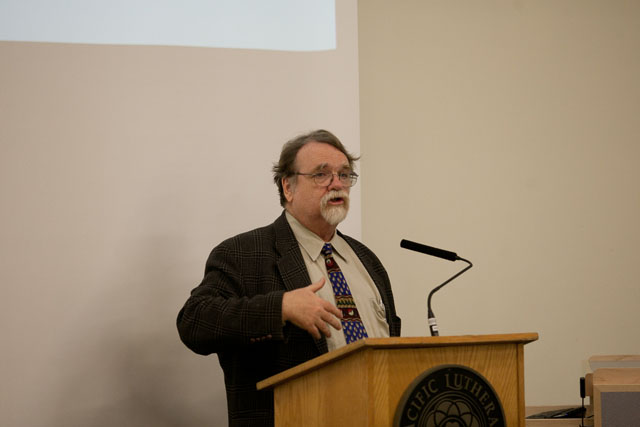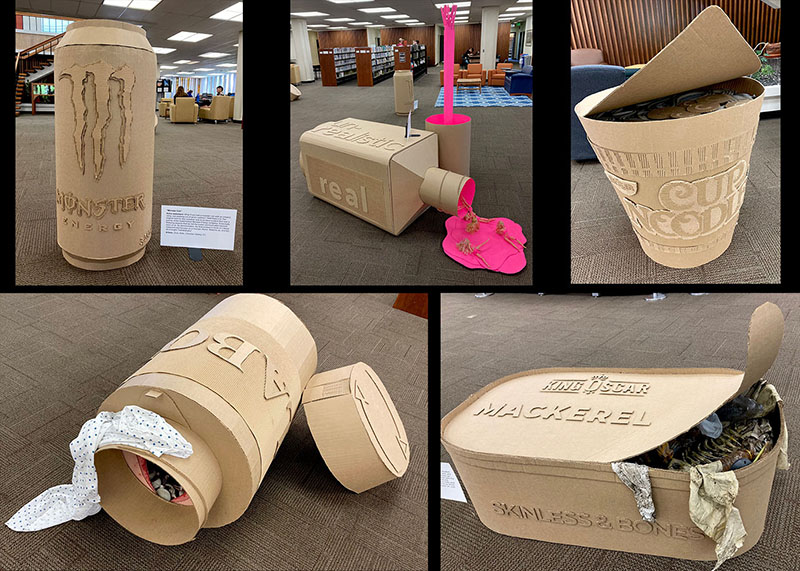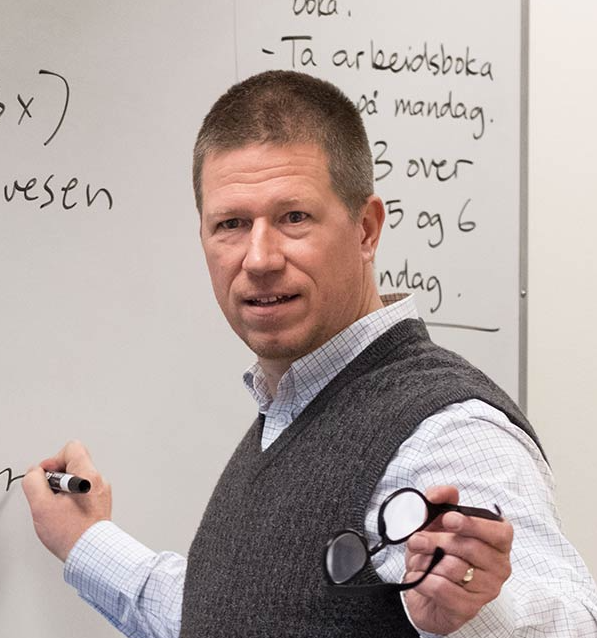Page 2 • (34 results in 0.026 seconds)
-

Lecturer - Music History | School of Music, Theatre & Dance | nlockey@plu.edu | 253-535-7602 | Nicholas Lockey is a Puget Sound native whose career has spanned music performance, research, composition, education, and arts administration. As an educator, he has served on the faculty of Sam Houston State University and as a visiting faculty lecturer at Princeton University, teaching courses in music history, music appreciation, world music cultures, music performance, and interdisciplinary arts courses.
education opportunities for local students through his current work as the Managing Director of the Tacoma Youth Chorus. His research combines aspects of music history and theory with interdisciplinary work to offer new perspectives on issues of compositional process and reception history, ranging from orchestration and musical form to aesthetics and performance practice. He has particular specialties in the music of Vivaldi and Handel. His research has been published in journals such as Eighteenth
-

Lecturer - Music History | Music | nlockey@plu.edu | 253-535-7602 | Nicholas Lockey is a Puget Sound native whose career has spanned music performance, research, composition, education, and arts administration. As an educator, he has served on the faculty of Sam Houston State University and as a visiting faculty lecturer at Princeton University, teaching courses in music history, music appreciation, world music cultures, music performance, and interdisciplinary arts courses.
providing performance and education opportunities for local students through his current work as the Managing Director of the Tacoma Youth Chorus. His research combines aspects of music history and theory with interdisciplinary work to offer new perspectives on issues of compositional process and reception history, ranging from orchestration and musical form to aesthetics and performance practice. He has particular specialties in the music of Vivaldi and Handel. His research has been published in
-

Paul B. Thompson, the W.K. Kellogg Chair in Agricultural, Food and Community Ethics at Michigan State University gave the keynote address for the Food Symposium. (Photo by Igor Strupinskiy ’14) Exploring food issues By Katie Scaff ’13 Food intersects with just about any social justice…
of Wisconsin in Marshfield/Wood County. Kuehn, who is particularly interested in food aesthetics, also led a presentation on Tuesday, when the symposium sessions opened for PLU and the greater community. His talk, entitled “Cooking and Love: Why No One Can Ever Cook Like Grandma,” was part of a session on food passions. Other sessions on Tuesday included topics, such as the chemistry of farming, how to know what goes into your food, and feeding the public. The two-day symposium ended with a
-

Join Pacific Lutheran University on March 16, 2023, from 4 to 6 p.m. for the annual Koller Menzel Memorial Lecture. The night will feature a bioethics discussion with University of Washington professor Tim Brown and Stanford University professor Hank Greely. The two esteemed speakers will…
, (black/latinx/queer) feminist thought, and aesthetics. He recently won an essay contest for a piece titled “Moral Bioenhancement as Potential Means of Oppression.” Professor Henry T. (Hank) Greely will speak on “Human Biological Enhancement: Fears, Realities, and Significance.” Greely chairs the Stanford Center for Biomedical Ethics’s steering committee and directs the Center for Law and the Biosciences, and the Stanford Program in Neuroscience and Society. Greely is also a professor of genetics at
-

TACOMA, WASH. (Oct. 6, 2016)- The scholarship of a Pacific Lutheran University faculty member has evolved into a three-part, cross-cultural project that brings together artists and scholars from around the world. Paul Manfredi, chair of Chinese studies, recently published his book “ Modern Poetry in…
campus Oct. 28. “The conference aims to take a very broad approach to understanding word-image aesthetics in contemporary China and beyond,” Manfredi said. Participating scholars are coming from the United Kingdom, Taiwan, China, Canada and various locations in the United States, Manfredi said. They are specialists in Chinese contemporary art, contemporary literature and film, as well as literature and art from other regions of the world. The project, titled “Ekphrastic Assimilations: Finding Poetry
-
Originally published in 2014 One of the things that studying Indigenous stories and situations has shown me is that knowledge isn’t neutral. Our systems of knowledge grow out of our ways of being in the world and are all culturally-specific—that is, they are all created…
colleagues and Indigenous scholars from other nations. Currently, I am involved in two major research projects: a place-based study on competing and collaborating stories and perspectives with Dr. Kikki Jernsletten, a Sámi colleague in Norway, and a project on Indigenous aesthetics with an international group of Indigenous scholars including Sámi, Cree, Maori, and Native Hawaiians. Both projects involve developing critical scholarly approaches deriving from Indigenous ways of knowing.This research focus
-
Enhancement March 16th, 2023 4:00 - 6:00 p.m. Scandinavian Cultural Center in the Anderson University Center Speakers will be: Professor Tim Brown from the University of Washington The Moral
thought, and aesthetics. His research explores the potential impact of neurotechnologies—systems that record and stimulate the nervous system—on end users’ sense of agency and embodiment. His work also interrogates neurotechnologies for their potential to exacerbate or create social inequities, in order to establish best practices for engineers. Finally, Dr. Brown’s approach to research is interdisciplinary, embedded, and relies on mixed methods; his work on interdisciplinary is aimed at encouraging
-

This exhibit of student work is based on an art class assignment in which students were given everyday objects and tasked with replicating and constructing forms using sheets and rolls of cardboard, self-adhesive paper tape, and hot glue. The project covered scale, mathematical reasoning, armatures,…
On Exhibit: Cardboard Containers sculptures by 3-D design students Posted by: Holly Senn / May 15, 2023 May 15, 2023 This exhibit of student work is based on an art class assignment in which students were given everyday objects and tasked with replicating and constructing forms using sheets and rolls of cardboard, self-adhesive paper tape, and hot glue. The project covered scale, mathematical reasoning, armatures, product design, logo and graphic design, and the aesthetics of commercialism. To
-

Professor of Native American and Indigenous Studies | Native American and Indigenous Studies | storfjta@plu.edu | 253-535-8514 | Troy Storfjell (Sámi) specializes in Sámi and Indigenous studies, where his work is largely guided by Indigenist criticism and decolonize methodologies.
Indigenous studies Nordic literature and film Responsibilities Council Member, Native American and Indigenous Studies Association (NAISA). 2017 to present. Selected Presentations Native American and Indigenous Studies Association, These songs of freedom: Matti Aikio, Aagot Vinterbo-Hohr and the aesthetics of Sámi literary survivance, University of Hawai'i, Manoa (May 2016) Society for the Advancement of Scandinavian Study, Unraveling the Master’s Voice: Matti Aikio’s Subversive Turn, New Orleans (May
-

Dr. Youtz has been part of the Trinidad Gateway Program since its beginning in 1993 and he began taking students to Trinidad and Tobago in 1999. This jewel of a country in the Southern Caribbean has a rich diversity of the world’s peoples and a…
, Carnival is a celebration of survival and resilience against the oppressions of slavery and colonialism as well as a celebration of life and art. Every year Carnival is somewhat different as it responds to changing aesthetics, changing ideas, and world events that form the topics for the famous Calypso songs. Students in this J-term course spend time visiting rehearsals of steel bands, talking to both teachers and performers of calypso, and meeting with other community leaders involved with the
Do you have any feedback for us? If so, feel free to use our Feedback Form.


